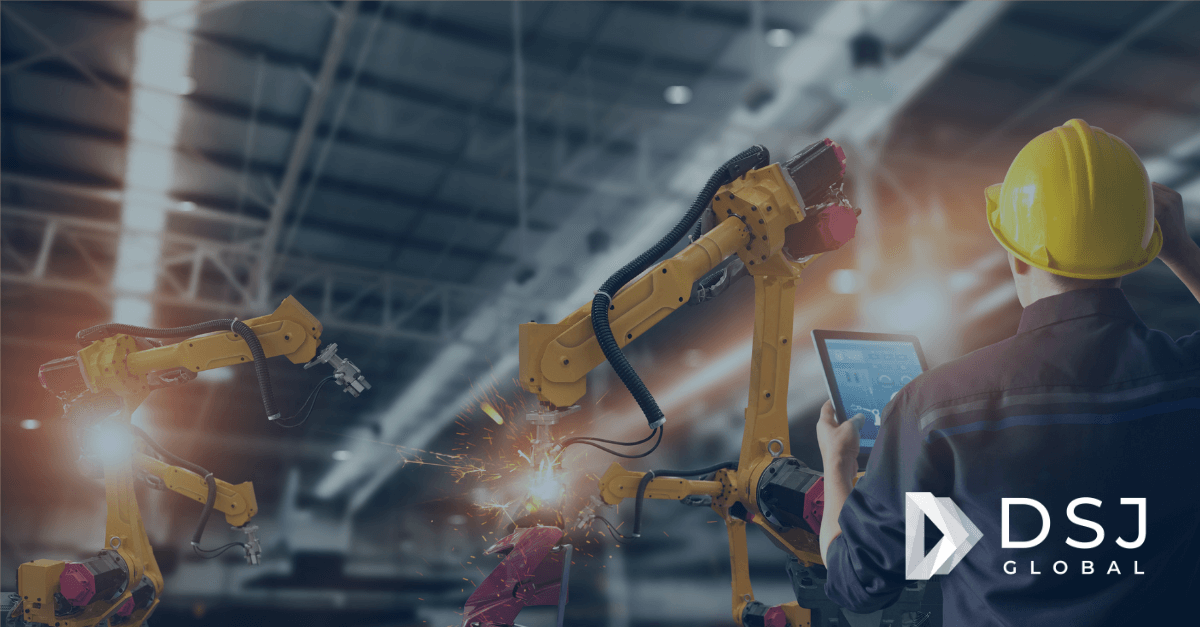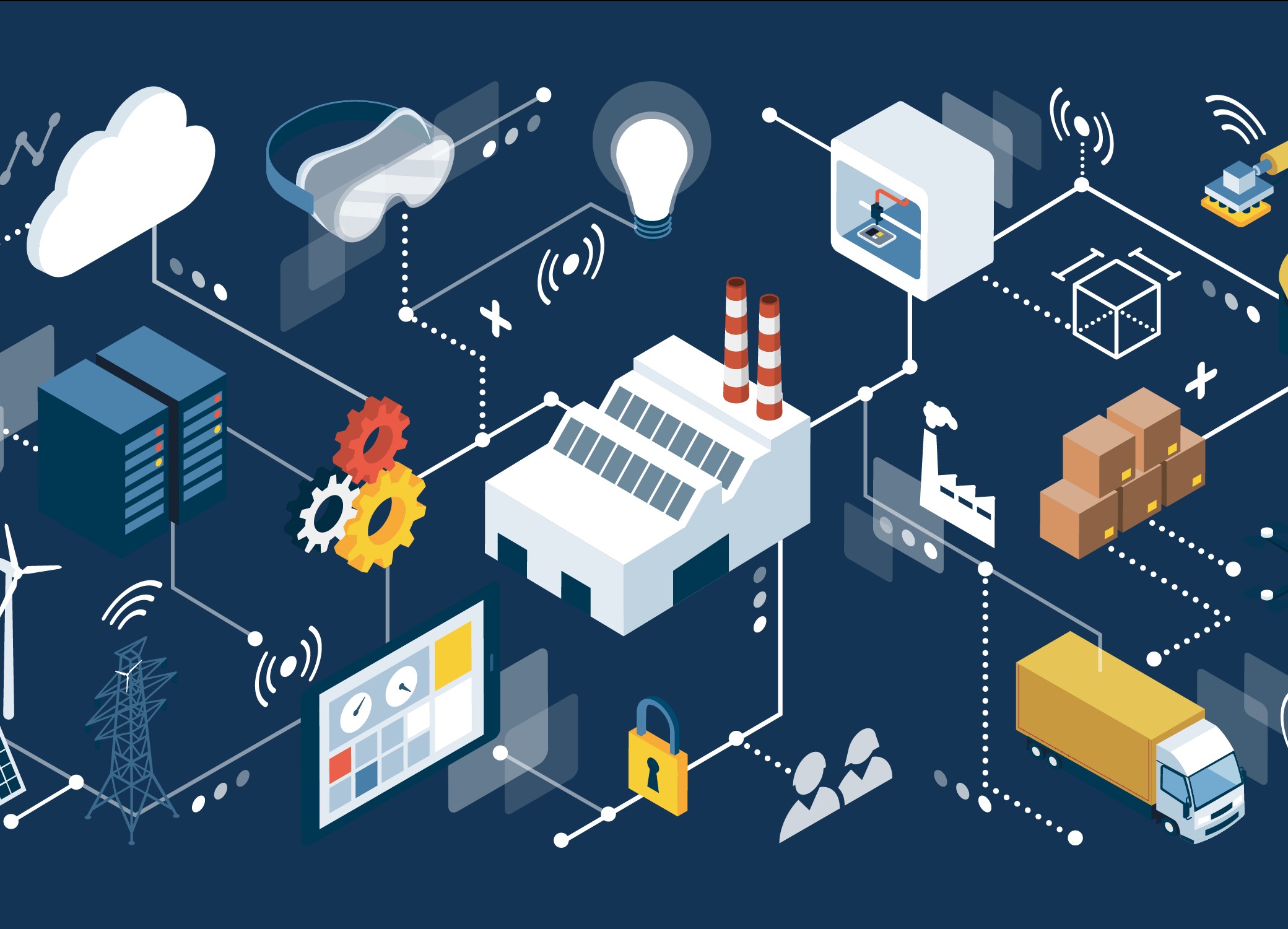
Industry 4.0 is here, but will the path to digital transformation be a disruptive force for Supply Chain talent?
The Fourth Industrial Revolution, also commonly referred to as Industry 4.0, is upon us. Amidst this era of breakthrough technologies, which encompasses the internet of things (IoT), big data, analytics, augmented reality, among others, many business leaders and decision-makers are discussing how to navigate this new supply chain terrain.
As Industry 4.0 blurs the lines between the digital and physical worlds, it's likely that pervasive new technologies might present a significant hurdle for some firms. For example, Industry 4.0 could make supply chains vulnerable to cyber risks, cause a constraint in cash flow, and the current skills shortage might halt progression. After all, supply chain disruptions are nothing new. From the container ship blockage in the Suez Canal to the post-pandemic activity taking its toll on rising inflation, this combination of factors was certainly a bottleneck facing supply chain firms last year, particularly as a staggering 91% of APAC professionals reported that they experienced a price increase within their supply chains. In our same survey report, more than 75% of respondents were aligned in their view that 2021 was a year of hardships and challenges across the procurement, logistics, and supply chains functions.
Against this context, Industry 4.0 – aided by disruptive new technologies – might come at an unwelcome time to business leaders. However, although the risks are inevitable, great opportunity abounds in Industry 4.0, which is projected to decrease operational costs of supply chains by more than 30% and reduce lost sales opportunities by over 60%. But the advantageous prospects don’t stop here, transitioning supply chains to this wave of digitization helps break down outdated and siloed processes, and for the better. Industry 4.0 opens up a tapestry of possibilities for supply chains, from reconfiguring business processes quickly, and strengthening integration, to allow for more accurate real-time results.
Enterprises might therefore look to enact transformational change to avoid being changed, but how can employees and/or employers be ready for whatever challenges lie ahead?
Tug-of-war between tech and talent
We sat down with Andrew McNeilis, Managing Director at Phaidon International APAC (DSJ Global’s parent company), as he shared his expertise on how to navigate talent management in this variant-rich revolution. When asked if Industry 4.0 might present significant challenges for talent acquisition, retention, or management, McNeilis reports, “across every industry, there has always been an imbalance between the available talent pool with the requisite skills/experience and the demand for that talent. This will be no exception as companies seek to harness digitalization.” McNeilis points out that this labor mismatch, unfortunately “impacts every walk of life, industrial hub, or sector that has an industrial output. There are roles, either at the end-user basis or front end, that will feel the forces of this imbalance, but in turn, this might create some opportunities within this space.”
Despite the Fourth Industrial Revolution presenting a challenge for businesses today, they should look to integrate Industry 4.0 technologies into their supply chains. As it stands, 37% of APAC supply chain professionals surveyed are aware of Industry 4.0, but have deprioritised it over more pressing factors, such as the high inflation rates, which are an acute concern for 48% of this cohort. However, disruptive new technologies are an enabler of collaboration, and this collaboration could exist on a truly monumental scale. By leveraging digital collaboration or blockchain technology at every touchpoint of the supply chain, this unlocks a myriad of benefits, such as nimbler distribution and a more future-proofed, cost-effective system. And business-critical talent will be key to take competitive advantage. Whether that’s securing professionals with technical competencies or reskilling the workforce, businesses should look to get the top talent in place to reframe the future.
McNeilis accurately points out that, “Industry 4.0 is not an overnight sensation. Some organizations are advanced in their harnessing of digitalization and interconnected technology to make their manufacturing processes better, more cost-efficient, or innovative. Other organizations are just starting out on this journey, and this has always been the case.” The same is true for talent. Securing industry-leading professionals won’t happen overnight; but employers can start taking action by reviewing current skillset across team members, leveraging a cutting-edge learning and development platform, and working hard to understand the unique sentiments in the talent community. This offers the best chance for attraction and retention.
To learn more about how Industry 4.0 might affect your business, or to have a confidential discussion with one of our talent specialists, request a call back from our DSJ Global team today.
Inflation, Covid and the Rise of Industry 4.0

Curious about the industry sentiment around
Inflation, COVID-19 and the Digital Transformation Era?
See our compiled findings below: